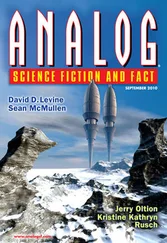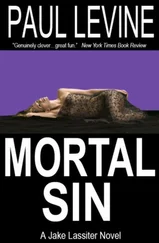Fretting, she turned further into the book and unexpectedly caught sight of a reference to her new job, one minute digging avidly into the pages to locate the tiny paragraph and read it, the next sitting down on the floor to cry in disappointment, for the chief of the two listed job duties was the spooning of unhealthy human hair from the floor into refuse containers filled with a strong fluid.
Yet it was later, exhaling, resting on a gray institutional couch near the door, that she began to think in earnest about her new job and its place in the world, realizing that all work, if viewed with a clear gaze, was in fact important, if not actually key — key in the sense that the tiniest bolts ultimately bear up the frame of a machine so it can continue to function, even in the event of a trauma. So it was with this thought, and so many other positive thoughts just like it, that she finally pushed through the door and left the Employment Office in search of her Administrator, who certainly would greet her with warmth and teach her all sorts of valuable new skills, so that she, Dra—, could finally begin to live at the point at which most lives typically begin.
Walking according to the directions on the sheet, she wound through an unfamiliar hallway, hearing the hollow whirring of machinery, then pressed onward, climbing a block of padded stairs. At the top she found herself at the entrance to a huge storehouse cluttered with upright rolled metal, and looking in, she gasped with surprise, for The Man with No Hair was passing through the other end of the room, pouring pills from a brown bottle into his mouth.
Heart racing, she fumbled to a nearby empty work desk and sat, breathing hard, wanting badly to follow the man and speak to him; yet she was unable. Soon, when she was settled into the job, she reasoned, she would probably be speaking to him quite frequently, in any case, with ease and confidence, too. Perhaps they would pass notes to one another in the hallway as their paths crossed, or, she also imagined, walk together in search of water, maybe even finding some.
Yet these imaginings sickened her to the point that she leaned over and weakly spat onto the floor, since what exactly she would say to the man — who knew what words, what impossible sounds — was inconceivable, as was the idea of growing deeply familiar with his entire person, loose belt and pallid demeanor included. So she realized quickly that if they ever so much as spoke, she would need to put an end to it immediately.
Sitting there at the empty desk, she grimly put the man from her mind and again uncrumpled the assignment sheet, which informed that she was to work at many, many jobs from now on, not only the pump site; and that these adjunct jobs, though menial, were scattered throughout a wide range of floors and departments; the sheet also described how all jobs were connected, and supported the same convictions. Reading on, Dra— dropped off to sleep, then woke reading the last line of the sheet, which said she must report to one of these adjunct jobs twenty minutes hence, at a site not far from here.
She got up and ran briskly toward this site, paying heed to the sheet’s directions, which pinpointed a spot on the far side of a roof, accessible only via a series of elevators. She knew these elevators and had ridden them before: ill-lit inside, they leaned topside forward as they shot upward, then curved in jagged patterns along the sides of high walls before depositing passengers and returning to their final station, where they were serviced by mechanics in gas masks.
The dark, miles-long roof was covered by another roof and so on, the top roof being unreachable in all ways; and as she walked toward the elevators, she passed a small niche that contained an open-walled guard station, though it did not contain a guard, but instead two figures struggling unpleasantly beneath a cloak, and she turned away.
Once upon the roof she saw, at a short distance, hundreds of small indoor airplanes in rows, engines roaring powerfully, as hundreds of employees waited at a distance to board them. Through a haze of smoke, she watched the small planes taking off and landing every few moments, scorching past her so closely, in fact, that her body vibrated enjoyably.
Amidst the deafening noise, the employees stood quietly in lines, some nearly naked, some wearing thin gray woolens or other haphazard-looking clothing. Stepping past an old mechanically driven clock that leaned crookedly, she realized that at this time of day employees generally left their work shifts for other, longer, more complex work shifts that would last far into the night and for days beyond that.
In one of the lines she observed a man of young middle age wearing only a tan, collared shirt and socks, the skin of his scalp mottled and exposed. He grasped anxiously at his thighs, squinting in the murky air, then, hesitating, he stepped over and reached out to tap the elbow of the woman next to him, who was older and wore dark kneesocks and a tattered coat. The man smiled at her and over the noise called loudly, “I see you’re tired, probably bone-tired, and I just want to say that I feel that way, too! It looks like life is hard for you right now, and I hope that’s true — I mean, I hope you’re just like me, but I can’t presume. Or can I?”
The woman, face terse, blank, stared ahead. “What are you talking about?” She turned to look at him, and he ducked and smiled.
“Here comes your airplane,” the woman said loudly. “Go on with the others!”
The man called out, “I always say the wrong thing!” “The wrong thing?” the woman mocked. “If you think I’m saying you’re wrong and I’m right, then you’re imbuing me with authority I don’t have! I’m nobody’s mother. Now, walk over there to that little plane!”
“Oh,” the man said weepily, stepping up to her. “The truth is, I’ve never flown to a new worksite before — I’ve never flown at all!”
“Is that right?”
“Yes! And now, my Administrator has expelled me for eating — eggshell, that is, and I have to go away on a plane! She doesn’t want me anymore — that’s the point. I should have fought her, I should have refused to leave, but I didn’t!” he said, bending to one side, as if with a cramp. “In the most crucial moments, I always fail to act!”
“Of course you fail to act,” the woman said, a hint of gaiety in her eyes.
“I don’t want to fly! I’m afraid of disaster, but I’m also afraid of diverting disaster!” the man said, letting forth a gulping, nervous laugh, his face filling up with bright pink.
A plane rose into the air nearby amidst deafening noise, then floated away. “Isn’t all of life an accident, anyway?” the woman said mildly.
“I may sound unreasonable, but my nerves make me this way. It’s just nerves,” the man said, looking around.
“We all hate to fly,” the woman said. “Oh, how we hate it, but we fly anyway, don’t we? ‘We fly to work, we fly onward,’ as the saying goes, and as another saying goes: ‘If you don’t mind waiting in line for a plane, I doubt anyone else does either!’ ”
“When is the right moment to state my demands? What is the best moment to disagree with someone?” the man broke out. “I can’t seem to find that moment, yet it must exist! Is it best to refuse another person’s ideas point-blank, with no room for discussion? Perhaps in the case of parties, I should leave quickly, before they ever start!”
A small plane rolled toward their line, bumping past, engines gunning. The man cried out, terrified, and tried to turn away as the woman pushed him forward, shouting into his ear, “That’s your plane! Stop fighting it, will you? It makes me sick to see people like you, so without dignity.”
The man staggered toward the bright body of the plane and fell to his knees, crying, as the woman stepped back with a smirk, her fist clenched in the air in a gesture of goodwill and departure. “Goodbye!”
Читать дальше












